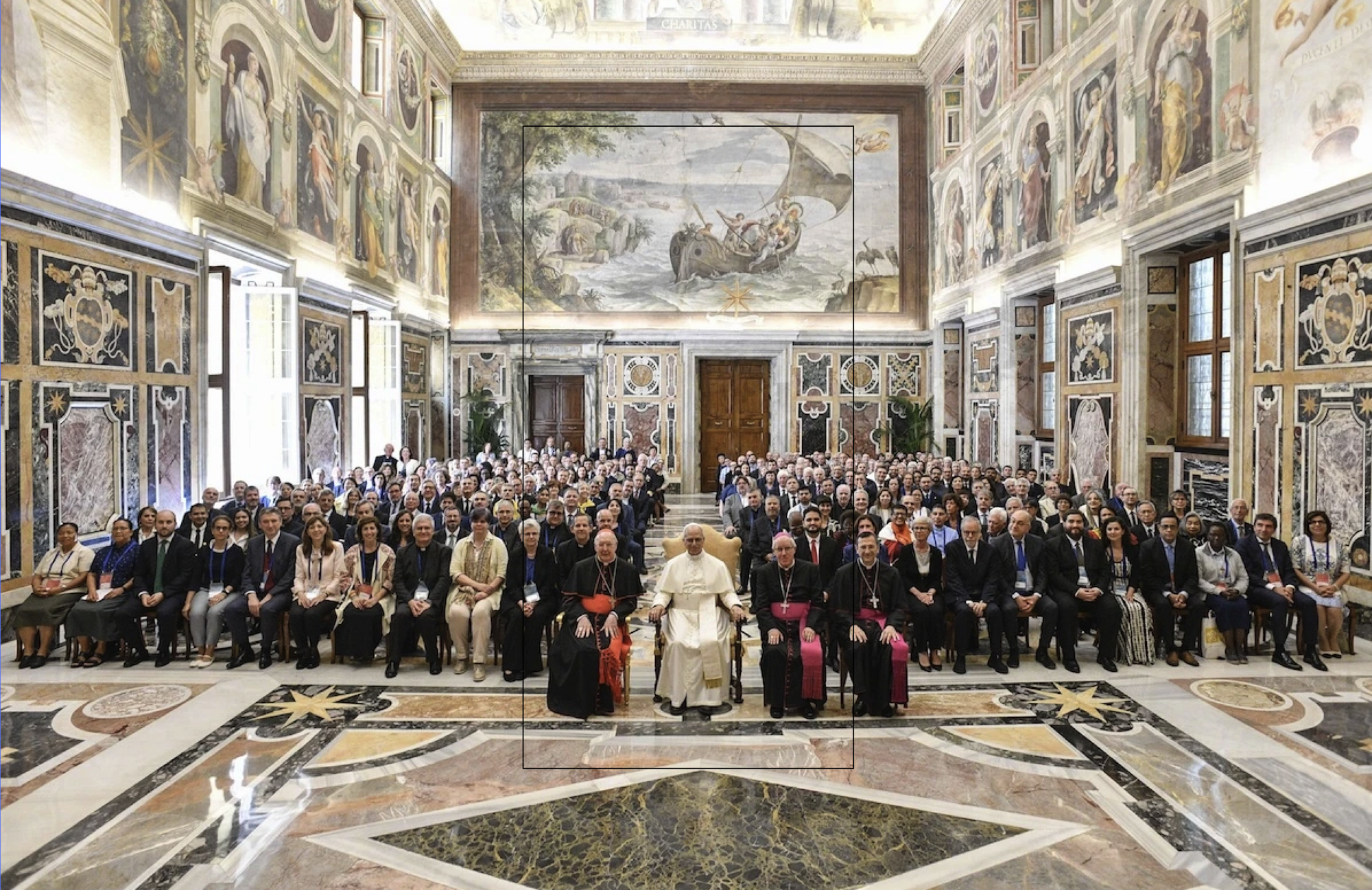Search
“Be a Leaven of Unity”
-
July 18, 2025Dear brothers and sisters, …
You represent the thousands of people who live out their faith and exercise their apostolate within associations, movements and communities. I would like to thank you above all for your work of guidance and leadership. Supporting and encouraging our brothers and sisters on their Christian journey requires responsibility and commitment, but also, at times, entails challenges and misunderstandings. Yet it remains a necessary and important task, and the Church is grateful to you for all the good that you do.
The gift of associations and charisms
The groups to which you belong differ from one another in kind and in history, and all are important to the Church. Some were founded to carry out a common apostolic, charitable, or liturgical project, or to support Christian witness in specific social settings. Others, however, originated from a charismatic inspiration, an initial charism that gave rise to a movement, a new form of spirituality, and evangelization.
The desire to work together for a common purpose reflects an essential reality: no one is Christian alone! We are part of a people, a body established by the Lord. When speaking of Jesus’ first disciples, St. Augustine once said, “They became God’s temple, not only as individuals; together they were built into the temple of God” (En. in Ps. 131, 5). The Christian life is not lived in isolation, as a kind of intellectual or sentimental experience, confined to the mind and the heart. It is lived with others, in a group and in community, because the risen Christ is present wherever disciples gather in his name.
The lay apostolate was strongly encouraged by the Second Vatican Council, particularly in its Decree on the Apostolate of the Laity. There we read that apostolic associations “are very important also because the apostolate often calls for concerted action, either in ecclesial communities or in various spheres. Associations established for carrying on a common apostolate support their members, train them for the apostolate, and carefully assign and direct their apostolic activities. As a result, a much richer harvest can be hoped for from them than if each member were to act on his or her own” (No. 18)… A group picture with the leaders and moderators of ecclesial movementsI would like to invite you to consider charisms in relation to grace, to the gift of the Spirit. The Letter Iuvenescit Ecclesia, as you know, states that the ecclesiastical hierarchy and the sacrament of Holy Orders exist precisely so that “the objective offer of grace” made through “the sacraments, the normative proclamation of the word, and pastoral care” may always remain alive and present among the faithful (No. 14). Charisms, on the other hand, “are freely distributed by the Holy Spirit so that sacramental grace may bear fruit in Christian life in different ways and at every level” (n. 15).
A group picture with the leaders and moderators of ecclesial movementsI would like to invite you to consider charisms in relation to grace, to the gift of the Spirit. The Letter Iuvenescit Ecclesia, as you know, states that the ecclesiastical hierarchy and the sacrament of Holy Orders exist precisely so that “the objective offer of grace” made through “the sacraments, the normative proclamation of the word, and pastoral care” may always remain alive and present among the faithful (No. 14). Charisms, on the other hand, “are freely distributed by the Holy Spirit so that sacramental grace may bear fruit in Christian life in different ways and at every level” (n. 15).
Consequently, everything in the Church is understood in reference to grace: the institution exists so that grace may always be offered, and charisms are given so that this grace may be received and bear fruit. Without charisms, there is a risk that Christ’s grace, offered in abundance, may not find good soil to receive it. That is the reason why God raises up charisms: to awaken in hearts a desire to encounter Christ and a thirst for the divine life that he offers us. …
In recalling this, I would like to reaffirm, following my Predecessors and in accordance with the Church’s Magisterium, especially since the Second Vatican Council, that hierarchical gifts and charismatic gifts “are co-essential to the divine constitution of the Church founded by Jesus” (St. John Paul II, Message for the World Congress of Ecclesial Movements, May 27, 1998). Thanks to the charisms that gave rise to your movements and communities, many people have drawn closer to Christ and have found hope in life. They have discovered the motherhood of the Church, and they want to be helped to grow in faith, in community life and works of charity, and, through evangelization, to bring to others the gift they have received.
Unity and Mission, in Union with the Pope
Unity and mission are two essential aspects of the Church’s life and two priorities of the Petrine ministry. For this reason, I ask all ecclesial associations and movements to cooperate faithfully and generously with the Pope, above all in these two areas.
First of all, by being a leaven of unity. All of you constantly experience the spiritual communion that unites you. It is the communion that the Holy Spirit brings about in the Church. It is a unity that has its foundation in Christ, who draws us to himself and thus unites us with one another. St. Paulinus of Nola once wrote in a letter to St. Augustine: “We have one Head, one grace that fills us, we live on one Bread, we walk on one path, and we live in the same house... We are one, in both the spirit and the body of the Lord. If we separate ourselves from that One, we become nothing” (Ep. 30, 2).
Seek to spread everywhere this unity that you yourselves experience in your groups and communities, always in communion with the Church’s Pastors and in solidarity with other ecclesial realities. Draw close to all those whom you meet, so that your charisms may ever be at the service of the unity of the Church, and be “a leaven of unity, communion, and fraternity” (cf. Homily, 18 May 2025) in our world, so torn by discord and violence.
Secondly, mission... Always keep this missionary zeal alive in your midst: today, as always, movements have a fundamental role in the work of evangelization. Among you, there are many generous, well-trained people with “hands-on” experience… Place your talents at the service of the Church’s mission, whether in places of first evangelization or in your parishes and local ecclesial communities, in order to reach those who, albeit distant, are often waiting, without being aware of it, to hear God’s word of life.
Conclusion
… Always keep the Lord Jesus at the center! This is the essential thing, and charisms are meant to serve this purpose. They lead to an encounter with Christ; they foster human and spiritual growth and development, and they help to build up the Church. In this sense, all of us are called to imitate Christ, who emptied himself to enrich us (cf. Phil 2:7). Those who join with others in pursuing an apostolic goal and those who enjoy a charism are called alike to enrich others through the emptying of self. It is a source of freedom and great joy.
Thank you for being who you are and for all that you do.
Friday, June 6, 2025, Vatican

